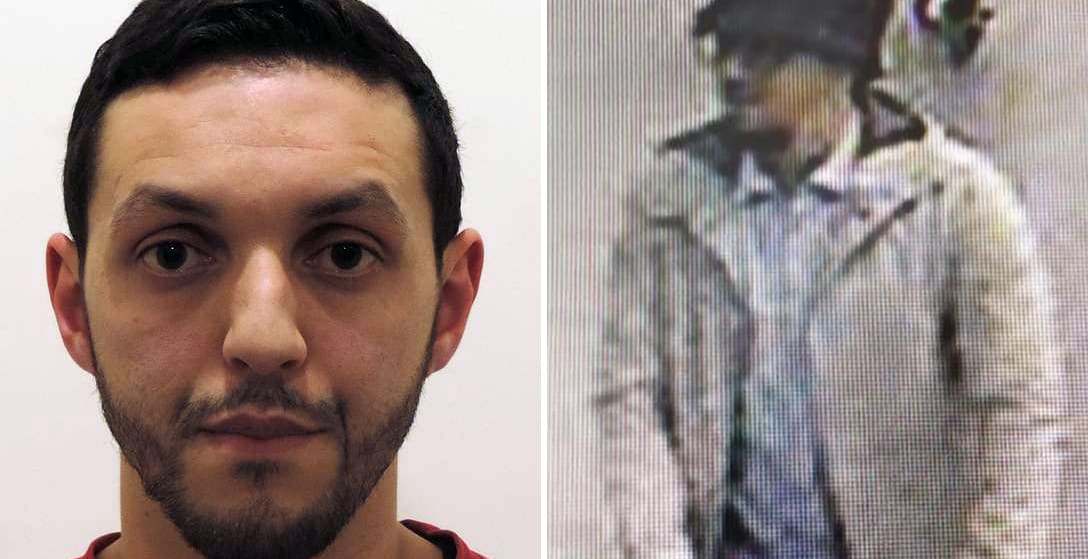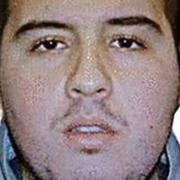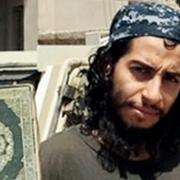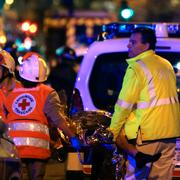
Terrormisstänkt lånas ut från Belgien till Frankrike
Mohamed Abrini har utlämnats från Belgien till Frankrike under 24 timmar för att förhöras om sin inblandning i terrorattentaten i Paris i november 2015. Abrini sitter sedan tidigare häktad i Belgien där han också misstänks för inblandning i terrordåden i Bryssel i mars förra året. 31-åringen fångades på övervakningsbilder tillsammans med gärningsmännen på flygplatsen Zaventem samt på en övervakningsfilm där han ses köra Salah Abdeslam, en av de huvudmisstänkta för Parisdåden.
bakgrund
Attentaten i Bryssel krävde 32 liv
Wikipedia (en)
On the morning of 22 March 2016, three coordinated suicide bombings occurred in Belgium: two at Brussels Airport in Zaventem, and one at Maalbeek metro station in central Brussels. Thirty-two civilians and three perpetrators were killed, and more than 300 people were injured. Another bomb was found during a search of the airport. Islamic State of Iraq and the Levant (ISIL) claimed responsibility for the attacks.
The perpetrators belonged to a terrorist cell which had been involved in the November 2015 Paris attacks. The Brussels bombings happened shortly after a series of police raids targeting the group.
The bombings were the deadliest act of terrorism in Belgium's history. The Belgian government declared three days of national mourning.
bakgrund
Attentaten i Paris krävde 130 liv
Wikipedia (en)
The November 2015 Paris attacks were a series of coordinated terrorist attacks that occurred on Friday 13 November 2015 in Paris, France and the city's northern suburb, Saint-Denis. Beginning at 21:16 CET, three suicide bombers struck outside the Stade de France in Saint-Denis, during a football match. This was followed by several mass shootings, and a suicide bombing, at cafés and restaurants. Gunmen carried out another mass shooting and took hostages at an Eagles of Death Metal concert in the Bataclan theatre, leading to a stand-off with police. The attackers were shot or blew themselves up when police raided the theatre.
The attackers killed 130 people, including 89 at the Bataclan theatre. Another 368 people were injured, almost 100 seriously. Seven of the attackers also died, while the authorities continued to search for accomplices. The attacks were the deadliest on France since World War II, and the deadliest in the European Union since the Madrid train bombings in 2004. France had been on high alert since the January 2015 attacks on Charlie Hebdo offices and a Jewish supermarket in Paris that killed 17 people and wounded 22, including civilians and police officers.
The Islamic State of Iraq and the Levant (ISIL) claimed responsibility for the attacks, saying that it was retaliation for the French airstrikes on ISIL targets in Syria and Iraq. The President of France, François Hollande, said the attacks were an act of war by ISIL. The attacks were planned in Syria and organised by a terrorist cell based in Belgium. Most of the Paris attackers had French or Belgian citizenship, two were Iraqis, and all had fought in Syria. Some of them had entered Europe among the flow of migrants and refugees.
In response to the attacks, a three-month state of emergency was declared across the country to help fight terrorism, which involved the banning of public demonstrations, and allowing the police to carry out searches without a warrant, put anyone under house arrest without trial and block websites that encouraged acts of terrorism. On 15 November, France launched the biggest airstrike of Opération Chammal, its contribution to the anti-ISIL bombing campaign, striking ISIL targets in Al-Raqqah. On 18 November, the suspected lead operative of the attacks, Abdelhamid Abaaoud, was killed in a police raid in Saint-Denis, along with two others.
Omni är politiskt obundna och oberoende. Vi strävar efter att ge fler perspektiv på nyheterna. Har du frågor eller synpunkter kring vår rapportering? Kontakta redaktionen


